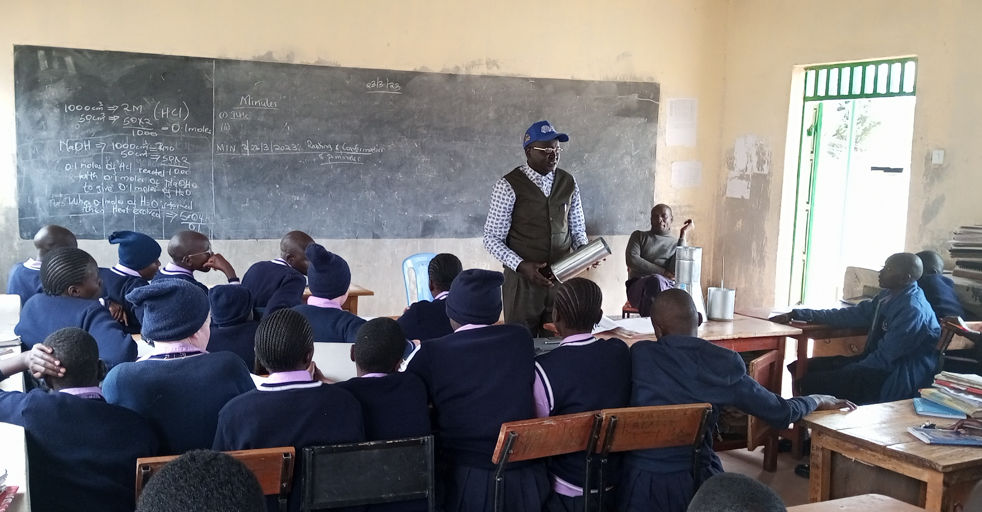Persons With Disabilities In West Pokot Sensitized On Climate Change

Persons with disabilities in West Pokot County have been sensitized on climate change and variability on climate adaption, mitigation, and impacts.
The Saturday event held at St Francis school for the visually impaired targeted the most vulnerable members of the society.
The theme of the occasion was “The Future of Weather, Climate, and Water Across Generations."
Over 200 students from St Francis secondary and primary school for the visually impaired were sensitized on how to appreciate the positive impacts of climate change and its influence on the future generations.
The information and awareness sessions on weather, climate, and water for future generations were mainly based on how the members of the society and students can be engaged in the mainstreaming of climate change adaptation and mitigation in the county.
According to the county meteorological director, Mr. Wilson Lonyang’ole, St Francis School for the visually impaired, was informed by the need to meet the students’ unique needs to mitigate the impacts of climate change they faced.
Lonyang’ole said that students have unique climate needs, and it is prudent to create information and awareness in a way that accounts for their needs because they are a vulnerable group in society.
“We are assured that they were going to be the agents of change and will have an influence to the broader community through their parents, families and relatives to enhance adaptive capacity to withstand climate shocks”, said the director.
He added that the vulnerable groups within society that face disproportionate climate impacts include women, persons with disabilities, older persons, children, youth and marginalised communities.
Lonyang’ole suggested that there is a need to introduce curriculum on climate change in schools vis-à-vis environmental issues already in existence and that climate change is the by-product of the environment.
“If you address environmental issues, you will be addressing future climate issues,’’ he stated.
He explained that weather and climate are two important phenomena in the atmosphere and when the two are not well mitigated, they can easily affect agricultural activities and water availability.
‘‘If weather and climate are not mitigated and become extreme, they become a risk and can destroy livelihoods hence increasing poverty levels and conflict over limited natural resources,” the county weatherman said.
He noted that to counter the vagaries of climate change and enhance resilience strategies for sustainable development, one needs a strategy to improve uptake of early warning systems of climate services, including weather forecasting and drought bulletins, for decision-making and disaster risk reduction.
He underscored the value of planting more trees to help mitigate against the harmful effects of climate change such as droughts and floods.
Lonyang’ole emphasised the need for appropriate actions to minimise emissions of carbon gases which accelerate climate change.
Kelvin Chirchir, a student at St. Francis School for the visually impaired, appreciated the interaction saying he had learned that trees can help reduce soil erosion hence the need to advocate against the cutting down of trees.
Another student, Shaleen Simuyu, reiterated the need to find ways to combat climate change and its devastating effects on lives and livelihoods calling for intensified reforestation moves in the region.
The learners had a privilege to get lessons on weather forecasting with the department donating a rain gauge to the primary school.
SOURCE: KNA
Tags: Signstv Wilson Lonyang’ole Climate Change


